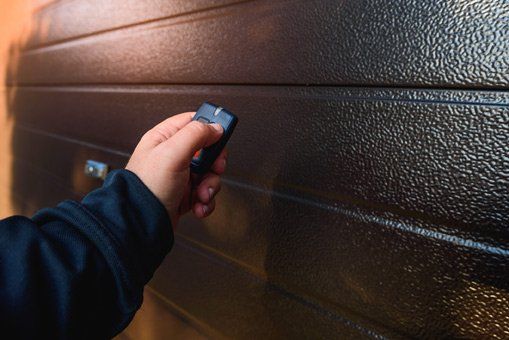4 Ways to Make Your Garage Door Quieter
Admin • August 23, 2018

Whether you're leaving for work early in the morning or arriving home late at night, the last thing you want is for your garage door to loudly proclaim your comings and goings. A noisy garage door not only makes a quiet entry or exit impossible, but it can also disturb others in your home. Your next-door neighbors might have trouble tuning out the clatter your garage door causes.
Although today's garage doors are designed to operate as quietly as possible, they can become noisier with age for a variety of reasons. Fortunately, there are plenty of improvements you make to control noise and make your garage door pleasant to use again. The following tips may come as sweet music to you and the rest of the neighborhood.
1. Check Your Hardware
There's more to your garage door than just the door itself. Behind the scenes is a collection of mounting hardware that makes it possible for your garage door to operate smoothly. Various brackets and fasteners help keep the tracks, cabling and door panels intact during daily use.
The mere act of opening and closing your garage door can send vibrations throughout the entire structure. Given enough time, these vibrations can loosen the fasteners holding your garage door hardware together. Not only do loose fasteners lead to rattles and other loud noises during use, but they also place your garage door a step closer to a serious malfunction.
Check each and every nut and bolt on your garage door on a regular basis and tighten those fasteners when necessary. Make sure your fasteners fit snugly against the hardware they're holding in place. Avoid over-tightening, as this could damage the fasteners along with your garage door hardware.
2. Upgrade Your Garage Door Opener
Your garage door opener can also be a source of excess noise. Most garage door openers are chain-driven, making them exceptionally reliable but at the cost of excessive noise. Chain-driven garage door openers can become even noisier if they go without maintenance for long periods. These garage door openers can also generate excess vibration due to their drivetrain setup.
Replacing your current garage door opener with a belt-driven alternative can help reduce noise, vibration, and harshness. By using a flexible rubber belt instead of a traditional metal chain, belt-driven garage door openers offer quieter operation and significantly reduced vibrations. Belt-driven units can last as long as their chain-driven counterparts despite needing maintenance more often.
3. Switch to Nylon Rollers
If changing out your garage door opener or tightening up the hardware doesn't help with your noise issues, then you may need to change out the rollers. Most garage doors use metal rollers on metal tracks - a combination that's often a recipe for noisiness, especially as the rollers wear out and develop flat spots or dents.
Switching to nylon rollers can help reduce noise levels while ensuring smoother movement for your garage door. Nylon rollers are not only quieter than their metal counterparts, but they also require zero lubrication and less maintenance.
4. Add Noise Insulation
Placing buffers between parts of your garage door hardware that experience frequent vibration can help reduce noise and even improve your garage door's overall longevity. For instance, you can replace metal washers used throughout your garage door hardware with rubber washers to minimize vibrations. You can also fit rubber pads between the garage door opener and its mounting brace.
Whenever you need to tackle a noisy garage door, you can count on the professionals at Zumwalt Corporation to lend a helping hand. Our team of seasoned experts can take care of your garage door needs, so call today.



